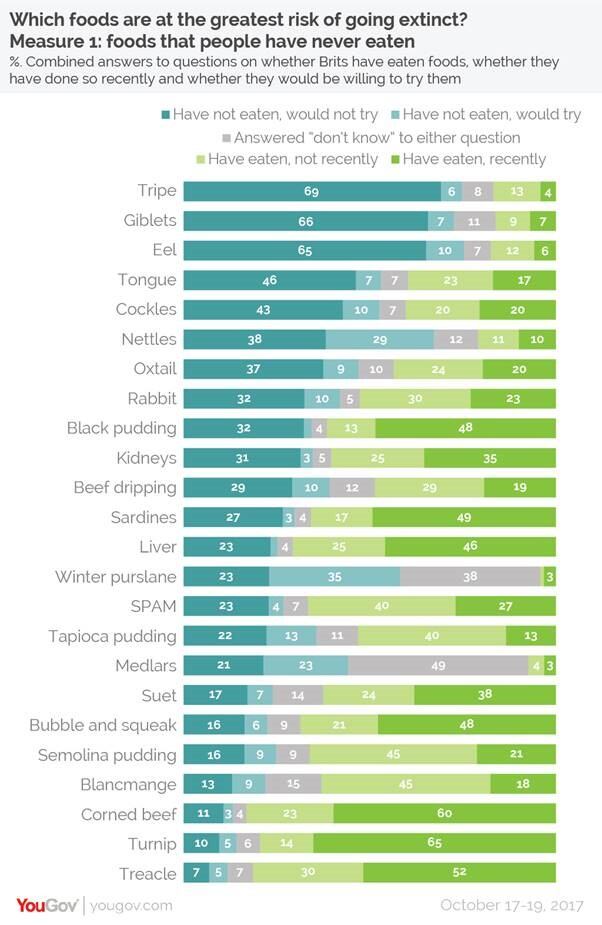A YouGov Omnibus survey, which included 2,151 adults, revealed that tripe is one of the traditional British foods that is at most risk of disappearing from menus.
Top five dishes at risk:
- Tripe
- Giblets
- Eel
- Tongue
- Cockles
YouGov chose 24 foods and asked respondents whether they had eaten each of those foods. Those who had eaten a specific food were asked whether they had done so in the past five years, those who had not eaten a food were asked whether or not they would be willing to do so.
The study found that very few people have eaten tripe (4%), eel (6%) and giblets (7%) recently and at least two thirds said they would not be willing to give them a try.
These three sit far ahead of their closest rivals – tongue and cockles, which 46% and 43% of Brits respectively have never eaten and would be unwilling to try.

In contrast, foods that large numbers of people still appear to be eating include turnips (65%), corned beef (60%), treacle (52%), sardines (49%), black pudding (48%), and bubble and squeak (also 48%).
While some foods appear to be widely consumed, this is because they are eaten by older generations.
For example, while 46% of Brits have eaten liver recently, just 29% of 18 to 24-year-olds have done compared to more than two thirds (69%) of those aged 65 and above.
Similar trend
There is a similar trend with corned beef (35% of 18 to 24-year-olds compared to 73% of over 65s), sardines (33% v 68%) and kidneys (18% v 52%).
Michaela Coulton from YouGov Omnibus said: “Many of the foods in our list were once staples of the British diet, but unfortunately (or fortunately, depending on your opinion), it appears as though several of the items’ days are numbered.
“We can attribute this to the wonderful choice we are exposed to these days and it is certainly true to say that some of the foodstuffs we asked about are not exactly Instagram-friendly, which is certainly important to a younger generation.”
